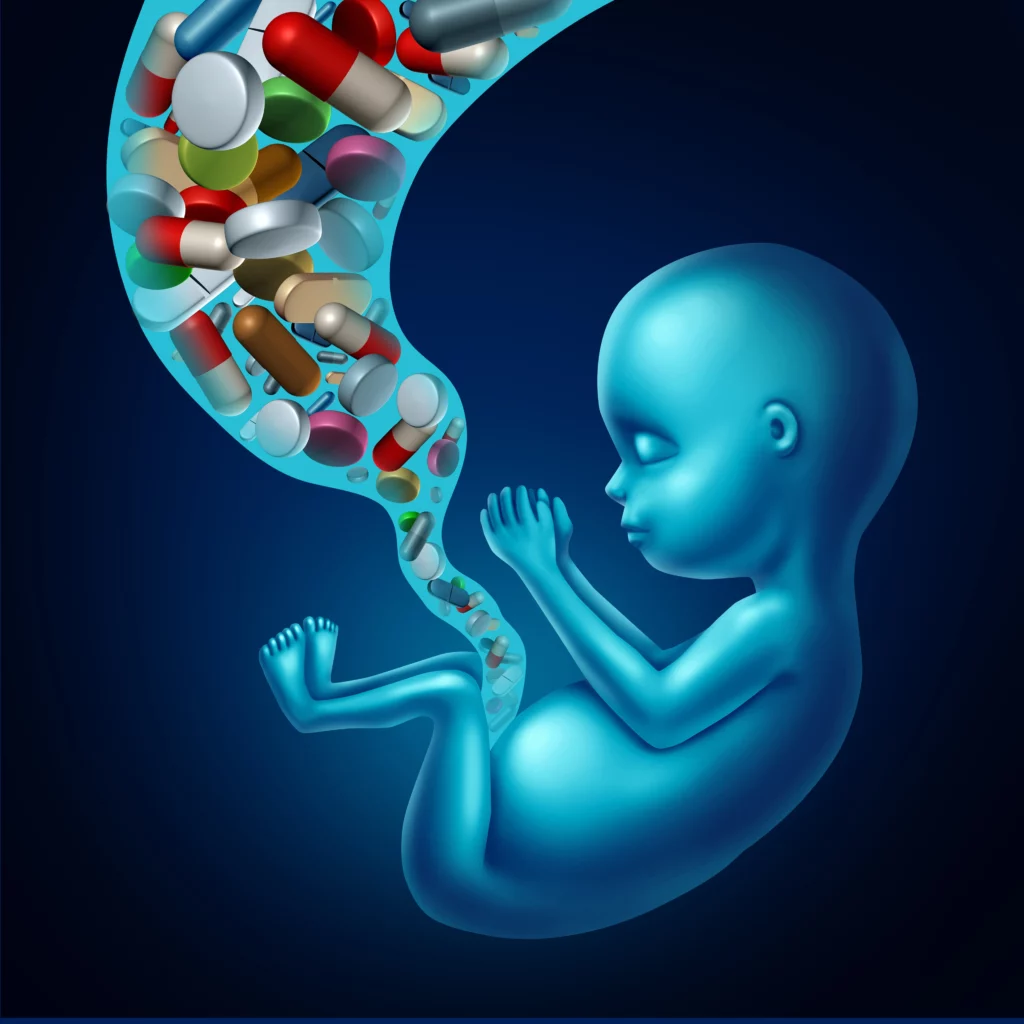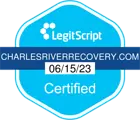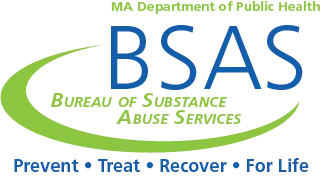Understanding the Dangers of Opioids While Pregnant
Opioid abuse is destructive to anyone, but it can have devastating effects on a fetus during pregnancy. An expectant mother who currently takes prescription or non-prescription opioids may be unaware of how these drugs can impact her unborn child; learning the effects, risks, and importance of getting treatment when needed can be lifesaving for both mother and child.
What Happens If You Take Opioids While Pregnant?
Taking opioids comes with health risks at any time, but when you are pregnant, the risk of harming your baby makes getting help even more important. Without intervention, opioid use during pregnancy can jeopardize your newborn’s health and put your own life at risk.
Many mothers do not realize that when they take any substance, it passes to their fetus. This means that when they take opioids, their baby is exposed to them as well. Just as you can develop a physical dependency on drugs, so can your baby.
Why Opioid Use While Pregnant Is Dangerous
Not everyone who takes opioids begins doing so with the intention of abusing them. While some mothers may turn to opioids for the psychological effects, others were originally prescribed the drugs as pain relievers for physical health problems.
Unfortunately, this can lead to a physical dependency that goes on to become a substance use disorder (SUD). According to the most recent data from the Centers for Disease Control and Prevention, around 7% of pregnant women use prescription opioids, and among them, one in five admit to misusing them.
Opioid misuse is taking opioids for a reason beyond relieving pain. Many women find that after they begin taking prescription drugs, it is difficult for them to stop. Physical discomfort caused by opioid withdrawal symptoms can cause people to continue taking drugs even when they no longer need them.
While it may not be a person’s intention to misuse a medication, the fact is that opioid dependency of any kind during pregnancy can have serious effects on both the mother and baby. Risks of opioid use during pregnancy include:
- Increased risk of maternal death due to overdose or opioid-related health complications
- Increased risk of stillbirth
- Premature birth.
- Specific birth defects, such as oral clefts, clubfoot, and congenital heart defects
- Neonatal abstinence syndrome (NAS)
What Is Neonatal Abstinence Syndrome (NAS)?
NAS is a combination of several symptoms and conditions that newborns go through as they withdraw from opioids after being born.
The effects of NAS can last for up to 72 hours after birth and include:
- Irritability
- Inconsolable, high-pitched crying
- Nasal congestion
- Sweating
- Digestive problems, including diarrhea and vomiting
- Dehydration
- Seizures
- Poor feeding reflexes
- Sleep troubles
- Tremors (shaking)
In some cases, symptoms of NAS can persist during the first month. Then, it is called neonatal opioid withdrawal syndrome (NOWS).
Protecting Your Baby
No mother wants to watch her child suffer or experience the emotional anguish of knowing your actions caused them pain. If you are currently taking opioids, then the first step is to determine whether you need treatment.
Opioid use disorder (OUD) affects millions of people every year, and there is no shame in admitting you have a problem. Being pregnant is a great reason to take that first step forward and admit you need help.
If you have been hiding your opioid use, you may be hesitant to reach out for fear of what others will think. Judgment can be scary, but the greater risks to your health and your child’s safety are far more important. Instead of focusing on what others might think, remind yourself that you have to do what’s best for your baby.
Treating an OUD requires specialized care. You should not quit altogether. If you stop taking opioids right away, the withdrawal effects could be life threatening. Instead, you should look for a program that can help cater to your unique needs as an expectant mother with an opioid problem.
At Charles River Recovery, a board-certified addiction psychiatrist oversees each client’s treatment. Our team provides clients with the individualized care they need to safely detox from opioids and begin their paths to recovery.
Identify the Risks of NAS
You should collaborate with your OB/GYN and discuss the risks of your baby suffering from opioid withdrawal at birth. If you haven’t disclosed your opioid use yet, letting your doctor know is critical to protecting you and your baby before, during, and after labor and delivery.
Your doctor can make sure that you receive the appropriate level of care throughout pregnancy. They can also screen your baby for potential birth defects common from opioid exposure.
When planning for delivery, your OB/GYN can ensure that you deliver at a facility equipped to care for newborns with NAS. As babies develop during their first month of life, it is vital to have them closely monitored by a pediatrician for any signs of complications.
Can You Go to Rehab While Pregnant?
Anyone is welcome to receive treatment, and getting opioid use disorder treatment while pregnant is the best thing you can do for your baby. If you are in your second or third trimester, then you will need to take additional measures to ensure that your rehab can accommodate your needs.
We offer both inpatient and outpatient residential treatment; medically assisted opioid rehab is also an option. Medications like methadone or buprenorphine act as a replacement for opioids in the body, allowing you to detox and manage your recovery without intense physical cravings.
For babies, there are still risks of medically assisted opioid therapy. Taking methadone or buprenorphine while pregnant increases the risk of NAS, though some psychiatrists and doctors still recommend it as it reduces the risk of opioid-related complications for both mother and child.
The risk of NAS should not prevent you from seeking help. While it is painful for the child, it can prevent the risk of overdose, birth defects from opioid exposure, and lower the chance of premature delivery and stillbirth.
Understanding the Importance of Therapy
Opioid dependency is a serious condition that requires professional support. Beyond medication, you also need guidance from an experienced team of mental health professionals who can lead you toward sobriety.
Mothers with opioid use disorder often have co-occurring mental health conditions, such as depression or anxiety. Addressing these issues is key to long-term recovery because opioids often take the role of “medication” when it comes to coping with symptoms.
Effective opioid treatment is not solely about eliminating the drugs from your system. You need a sturdy emotional foundation and solid coping skills to address future challenges you may face.
Individual Therapy for Opioid Use Disorder
In individual therapy, you work one-on-one with a licensed mental health professional who guides you through scientifically proven treatment methods. These treatments draw from cognitive behavioral therapy, motivational enhancement therapy, and the 12-step method.
Your therapist will work with you to find out what works, what doesn’t, and what strategies you need to navigate recovery and impending motherhood. There are likely many emotional challenges you face as you seek treatment; from fear and anxiety about your baby’s health to guilt and shame, therapy offers you a safe space to work through these feelings.
Group Therapy
Attending group therapy allows you to connect with other people going through treatment. Some will be farther ahead and offer wisdom from their experience; others will be newer and still working through the early days of recovery. Led by a therapist, group sessions offer you a chance to share your own experiences and heal through a community of like-minded people who understand your struggles.
Support Groups
Narcotics Anonymous (NA) is a popular opioid use support group that can help you receive ongoing support, encouragement, and guidance during your recovery. Regular meetings can help you build friendships and find sobriety mentors who help you embrace a life without opioids. NA also provides sponsors who can act as an anchor when you’re tempted to relapse.
Explore Your Options at Charles River Recovery
Our team specializes in substance abuse treatment, including opioid use disorder. With a dedicated medical team of therapists and psychiatrists, we ensure clients have access to all the care they need at every stage of recovery.
We focus on a full continuum of care that supports you at every stage of treatment. Most importantly, we adopt a holistic approach that caters to your entire well-being. Our treatment embraces your physical, mental, spiritual, and emotional health to promote genuine healing and recovery.
Located in Weston, Massachusetts, our facility offers easy access to care from Boston. We also provide our clients with access to various support groups, healthcare services, and a recovery community.
Treatment Made for You
There’s never a wrong time to seek treatment. Being pregnant, you have the chance to get care that can make you a better mother for your child. Although the thought of treatment can be scary, not getting help and raising a newborn while you have an opioid dependency is much scarier.
Even if you have been unsuccessful at stopping opioids in the past, there is hope. Help is available to you anytime you need it. The first step toward a lifelong recovery starts with a single step and an admission that you are ready to change.
We offer a wide range of services, including help with detoxification and medication-assisted treatment (MAT). Whether you need inpatient or outpatient treatment options, we can help you change your lifestyle, avoid potential relapse triggers, and support you and your unborn child throughout the process.
Contact us at Charles River Recovery today to learn more about our opioid use disorder treatment programs. We would be happy to answer any questions you have and guide you through the next steps of treatment.






